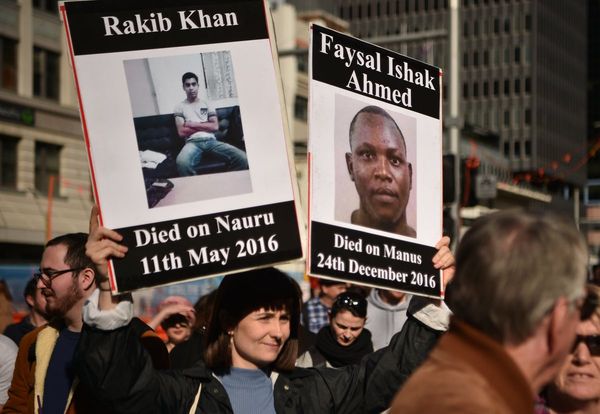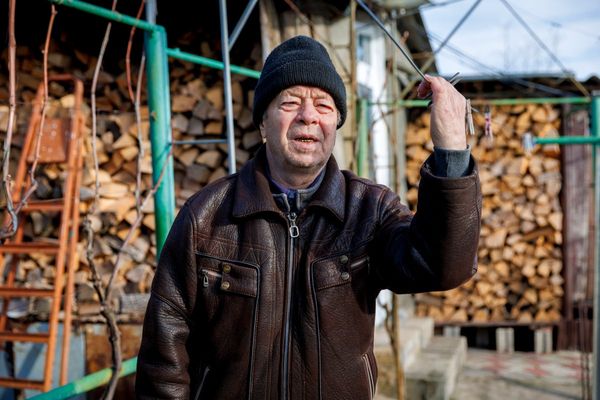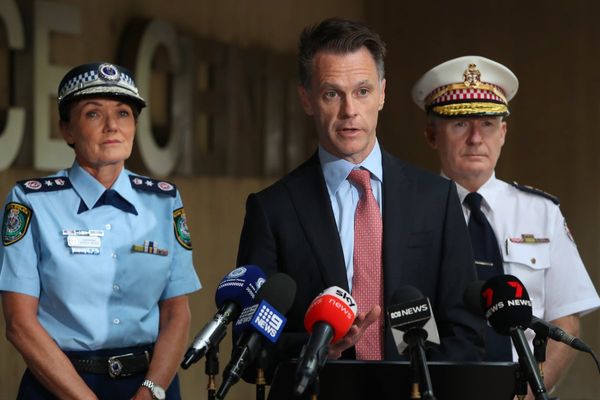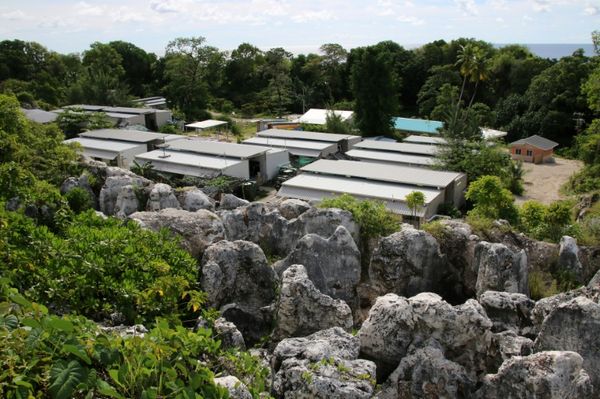
Keir Starmer has put a beefed-up £8bn windfall tax on energy company profits at the heart of a new plan to stop people having to pay “a penny more” on fuel bills this winter.
The Labour leader confirmed that under his plan the energy price cap would be frozen at the current level, meaning that an expected 80% rise in October – taking an average household bill to about £3,600 – would not go ahead.
Starmer said the country was facing “a national emergency” and that Labour “wouldn’t let people pay a penny more” on energy bills as a result of his “fully funded plan”. A typical family would save £1,000, he claimed.
He said: “Britain’s cost of living crisis is getting worse, leaving people scared about how they’ll get through the winter. Labour’s plan to save households £1,000 this winter and invest in sustainable British energy to bring bills down in the long term is a direct response to the national economic emergency that is leaving families fearing for the future.”
Starmer said the plan would cost £29bn over the winter and that it could be funded by extending the scope of the windfall tax on energy companies (raising £8bn), halting the proposed £400 payments for all households offered by the government to compensate for the price cap rise scheduled for October (saving £14bn), and lowering government interest payments on debt (saving £7bn), which Labour said would be possible because its plan would reduce inflation.
Last week Sir Ed Davey, the Lib Dem leader, and Gordon Brown, the former Labour prime minister, called for the energy price cap to be frozen at its current level and released plans explaining how this could be funded.
This led to criticism that Starmer, who was on holiday at the time, was letting them, rather than the Labour leadership, set the agenda.
Starmer’s plan was released as it was reported that Boris Johnson was on his second foreign holiday of the summer. He was photographed with his wife, Carrie, in a town near Athens. Earlier this month the couple had a break in an eco-hotel in Slovenia.
The energy price cap is now set at £1,971 and it is expected to almost double in October, with a further increase expected in January. Economists and charities have said millions of households will be plunged into poverty as a result, or left unable to pay.
The government has not proposed suspending the energy price cap rise, but it has announced an array of measures intended to help people pay their bills, and Johnson has said he is certain that his successor will offer more help in the autumn.
But neither Liz Truss, the foreign secretary and frontrunner in the contest to replace him, nor Rishi Sunak, her rival and the former chancellor, are calling for the energy price cap to be frozen.
And although both of them have signalled that that they would offer extra cash support to households, neither have proposed a full plan to fund this other than through extra borrowing. Truss maintains that her real priority is cutting the tax burden.
Starmer stressed that his proposal for the winter was part of a wider plan that also involves insulating 19m homes over the next decade. If the government had started that when Labour proposed it a year ago, 2m homes could have been insulated by now, saving typical occupants £1,000 a year, he claimed.
Under the energy price cap, Labour would need £29bn to pay energy companies to cover the gap between what they would receive from customers and what they would have to pay for energy on the wholesale market.
As well as freezing the energy price cap, the Labour plan would involve support for people not protected by the price cap, and a scheme to ensure people on prepayment meters do not have to pay more for their energy than people paying monthly.
Brown, as part of his plan, suggested the government should consider taking energy companies into temporary public ownership. Starmer has rejected this proposal on the grounds that money from the package should go towards helping customers, not compensating shareholders, a party source said.
To raise an extra £8bn from the windfall tax, Labour would close a loophole allowing tax relief on fossil fuel investment and backdate the tax to January.
The Labour announcement was welcomed by Davey. “Now that progressive parties and charities are speaking with one voice to cancel the energy price hike using a windfall tax, the woeful response from Liz Truss and Rishi Sunak is even more outrageous,” the Lib Dem leader said.
“The government’s dither and delay from this prime minister and any future prime minister is deeply damaging for pensioners and families across the country.”
Labour says that as a result of its plan, energy bills would add just two percentage points to inflation over the winter, instead of the six percentage points currently forecast. This figure has been backed up by analysis from the Institute for Public Policy Research (IPPR) thinktank.
Luke Murphy, an associate director for climate and energy at the IPPR, said Labour’s plans would “prevent soaring energy bills from pushing millions into debt and destitution, and hold down ever rising inflation which is a risk to the UK’s economic stability”.
But many international and domestic economic thinktanks have urged the government to boost means-tested benefits to target the households most at risk from rising energy bills.
The International Monetary Fund (IMF) has rebuked European countries, including the UK, for offering universal subsidies that also benefit better-off households in addition to higher benefits.
Adrian Pabst, the deputy director of public policy at the National Institute of Economic and Social Research, said: “I find it surprising that political parties should want to subsidise the companies that supply energy, and by that households that are better able to cope with the energy shock. It is more socially equitable to deal with the problem by increasing universal credit.”
Pabst was sceptical that a freeze in the cap would bring down inflation by a significant margin and that the Bank of England would react by halting expected interest rate rises.







